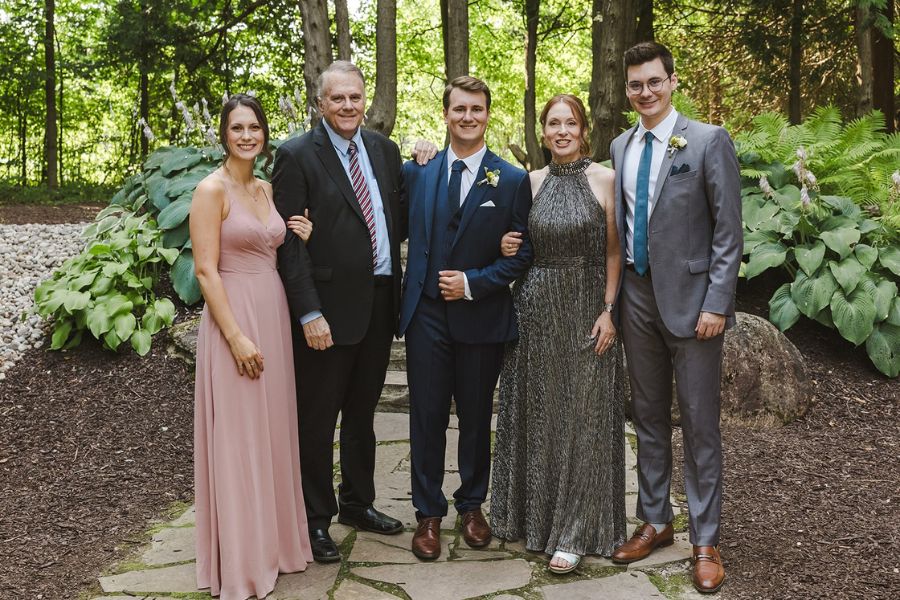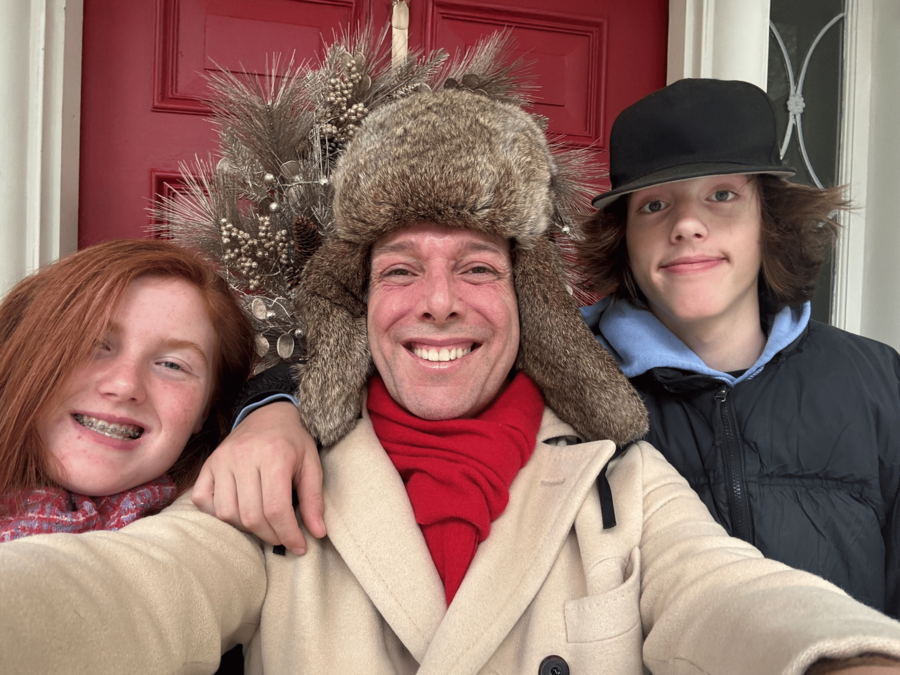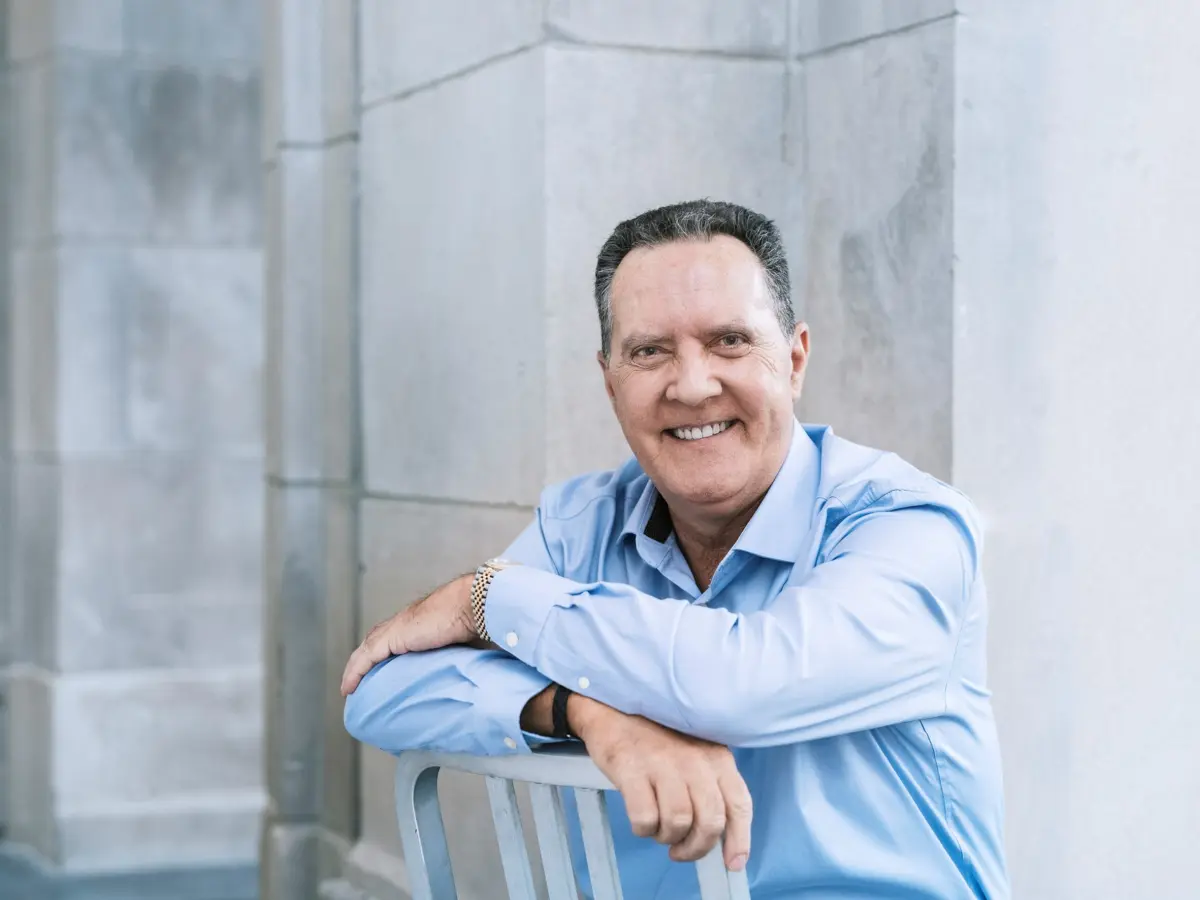David had Idiopathic Pulmonary Fibrosis (IPF), a disease doctors don’t know the cause of and which has no effective cure other than transplant. IPF affects an estimated 15,000 people in Canada. It causes scarring in the lungs which progressively become thick and stiff until the patient can’t breathe. Without transplant, the life expectancy of a patient with IPF is three to five years.
“I always took pride in being a person that can put up with anything, and I got hit by a disease that had no known cause, and there was very little I could do to stop it,” David says. “It was a shocker, but together with my family, I found the strength to keep moving forward.”
When he fell sick, David was actually training for one of the hardest endurance races in the world – the Ironman – which includes a 3.8-kilometre swim, 180-kilometre bicycle ride and marathon run (42.2 kilometres), and takes an average participant 12 hours to finish.
A retired teacher with two children and four grandchildren, David, now age 66, got into triathlon in his 50s with the main goal of having a new challenge and sharing it with his son and daughter, who had recently engaged in the sport.
And it really was a challenge. David is from Prince Edward Island and lived most of his adult life in New Brunswick, but until then he didn’t know how to swim.
“People assume we from New Brunswick or PEI know how to swim, but we don’t,” he says. “We work in the water, we don’t play in the water. I was on my couch eating chips, watching them race and I thought to myself – I can do this. I know how to run and to bike, if I just learn how to swim I can join them.”
From non-swimmer, David went all the way to completing two half and two full Ironman competitions.
“People think of these races as individual sports, but it’s actually very social,” he says. “You meet people from all walks of life in these races and they all have wonderful stories. And you practice together, travel together, visit new places, it is really neat. Except for the professional athletes, we don’t really run to win the Ironman. We run to finish, and to finish together.”
Team effort
A family that always bonded through sports, David’s wife, children, in-laws and grandchildren tackled his disease as a team. They kept a positive attitude, followed all medical directions and even changed their diet together. David had to slow down his athletic routine, but still exercised and played a sport called pickle ball – something that resembles tennis but in smaller courts and with smaller rackets.
His disease was in check for about five years, until he had to be rushed to Toronto General Hospital (TGH) after a crisis. David was listed for transplant and received the life-saving surgery last March – an opportunity that less than one per cent of patients with IPF get.
“Even though he had this terrible lung disease, David was otherwise very healthy which made him a great candidate for transplant,” says Dr. Shane Shapera, his clinician at TGH.”David is a fighter and he kept healthy habits even through the worst of his disease. He kept his body strong, he was emotionally strong and had this amazing support from his family.”
The surgeon who performed the operation on David, UHN’s Surgeon in Chief and Director of the Toronto Lung Transplant Program, Dr. Shaf Keshavjee, says David is the perfect example of the impact a transplant can have on a patient’s life.
“We often see people referring to transplant as miracles, and in a way they really are,” says Dr. Keshavjee. “They allow patients to go back to their lives and to what they are used to do – in David’s case, to his athletic activities. David’s story is a great inspiration and an important reminder of how being an organ donor can bring real impact in saving someone’s life.”
David says he is “simply delighted” to have received this second chance in life after the transplant, and insists on giving credit to his teams – at home and at the hospital.
“Our family, we approached this transplant journey a bit like an Ironman race,” David says. “We were one big team, putting all our energy and spirit into the goal of getting me healthy again and how lucky am I to have gathered such an incredible group of people around me?”
David’s wife, Susan, his son, Andy, his daughter, Sarah, and the grandkids were in and out of the hospital for his whole stay. He says he was never alone, even when it meant that his family was coming and going from New Brunswick, missing work and school days.
On the hospital side, David says he couldn’t have wished for better.
“We really get there the best of the best in terms of care, second to none in the world,” he says “But there’s also something quite unique at University Health Network, about the team you have and the level of respect that you give to all patients. From housekeeping, to nurses, residents, doctors, everyone there was fantastic. Now, I have a second lease on life and a chance to get back to the sports I love, entirely thanks to the people at UHN.”
Flying again
At age 66, and only five months after his double-lung transplant, David was able to get in good enough shape to play hockey at Canada’s 55+ Senior Games, held last week in Saint John, N.B. He and his teammates finished in fourth in the competition – which is part of the games that bring together more than 1,500 senior athletes from across the country, playing in 24 different sports.
After receiving new lungs in March, his initial plan was to work hard and be ready to play pickle ball – already a challenge, but a sport that’s less demanding. Following all medical instructions, David was able to overcome his limits again and try the next step. Friends from his home province of PEI asked him to join them on ice and he said yes.
“These past few months, my recovery was really excellent and I felt I could push myself further,” he says. “The first day back on the ice was hard, but with some practice I just got that wonderful feeling again.”
David says that, for him, skating feels like flying.
“I remember reading this on a T-shirt in a store when I was recovering in Toronto – ‘I will fly again on the wings of another.'” He says. “How funny life is and how grateful I am now to my donor, because I really am flying again, on the lungs they gave me.”


